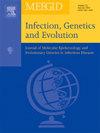BCG's role in strengthening immune responses: Implications for tuberculosis and comorbid diseases
IF 2.6
4区 医学
Q3 INFECTIOUS DISEASES
引用次数: 0
Abstract
The BCG vaccine represents a significant milestone in the prevention of tuberculosis (TB), particularly in children. Researchers have been developing recombinant BCG (rBCG) variants that can trigger lasting memory responses, thereby enhancing protection against TB in adults. The breakdown of immune surveillance is a key link between TB and other communicable and non-communicable diseases. Notably, TB is more prevalent among people with comorbidities such as HIV, diabetes, cancer, influenza, COVID-19, and autoimmune disorders. rBCG formulations have the potential to address both TB and HIV co-pandemics. TB increases the risk of lung cancer and immunosuppression caused by cancer can reactivate latent TB infections. Moreover, BCG's efficacy extends to bladder cancer treatment and blood glucose regulation in patients with diabetes and TB. Additionally, BCG provides cross-protection against unrelated pathogens, emphasizing the importance of BCG-induced trained immunity in COVID-19 and other respiratory diseases. Furthermore, BCG reduced the severity of pulmonary TB-induced influenza virus infections. Recent studies have proposed innovations in BCG delivery, revaccination, and attenuation techniques. Disease-centered research has highlighted the immunomodulatory effects of BCG on TB, HIV, cancer, diabetes, COVID-19, and autoimmune diseases. The complex relationship between TB and comorbidities requires a nuanced re-evaluation to understand the shared attributes regulated by BCG. This review assessed the interconnected relationships influenced by BCG administration in TB and related disorders, recommending the expanded use of rBCG in healthcare. Collaboration among vaccine research stakeholders is vital to enhance BCG's efficacy against global health challenges.
卡介苗在加强免疫应答中的作用:对结核病和合并症的影响。
卡介苗是预防结核病,特别是儿童结核病的一个重要里程碑。研究人员一直在开发能够触发持久记忆反应的重组卡介苗(rBCG)变体,从而增强对成人结核病的保护。免疫监测的中断是结核病与其他传染性和非传染性疾病之间的关键联系。值得注意的是,结核病在患有艾滋病毒、糖尿病、癌症、流感、COVID-19和自身免疫性疾病等合并症的人群中更为普遍。rBCG制剂有可能同时应对结核病和艾滋病毒的大流行。结核病增加了患肺癌的风险,癌症引起的免疫抑制可重新激活潜伏结核感染。此外,卡介苗的疗效扩展到膀胱癌的治疗和糖尿病和结核病患者的血糖调节。此外,卡介苗对不相关病原体提供交叉保护,强调了卡介苗诱导的训练免疫在COVID-19和其他呼吸道疾病中的重要性。此外,卡介苗降低了肺结核引起的流感病毒感染的严重程度。最近的研究提出了卡介苗递送、重新接种和衰减技术的创新。以疾病为中心的研究强调了卡介苗对结核病、艾滋病毒、癌症、糖尿病、COVID-19和自身免疫性疾病的免疫调节作用。结核病与合并症之间的复杂关系需要进行细致入微的重新评估,以了解卡介苗调节的共同属性。本综述评估了卡介苗在结核病和相关疾病中的相互关系,建议在医疗保健中扩大使用卡介苗。疫苗研究利益攸关方之间的合作对于增强卡介苗应对全球卫生挑战的效力至关重要。
本文章由计算机程序翻译,如有差异,请以英文原文为准。
求助全文
约1分钟内获得全文
求助全文
来源期刊

Infection Genetics and Evolution
医学-传染病学
CiteScore
8.40
自引率
0.00%
发文量
215
审稿时长
82 days
期刊介绍:
(aka Journal of Molecular Epidemiology and Evolutionary Genetics of Infectious Diseases -- MEEGID)
Infectious diseases constitute one of the main challenges to medical science in the coming century. The impressive development of molecular megatechnologies and of bioinformatics have greatly increased our knowledge of the evolution, transmission and pathogenicity of infectious diseases. Research has shown that host susceptibility to many infectious diseases has a genetic basis. Furthermore, much is now known on the molecular epidemiology, evolution and virulence of pathogenic agents, as well as their resistance to drugs, vaccines, and antibiotics. Equally, research on the genetics of disease vectors has greatly improved our understanding of their systematics, has increased our capacity to identify target populations for control or intervention, and has provided detailed information on the mechanisms of insecticide resistance.
However, the genetics and evolutionary biology of hosts, pathogens and vectors have tended to develop as three separate fields of research. This artificial compartmentalisation is of concern due to our growing appreciation of the strong co-evolutionary interactions among hosts, pathogens and vectors.
Infection, Genetics and Evolution and its companion congress [MEEGID](http://www.meegidconference.com/) (for Molecular Epidemiology and Evolutionary Genetics of Infectious Diseases) are the main forum acting for the cross-fertilization between evolutionary science and biomedical research on infectious diseases.
Infection, Genetics and Evolution is the only journal that welcomes articles dealing with the genetics and evolutionary biology of hosts, pathogens and vectors, and coevolution processes among them in relation to infection and disease manifestation. All infectious models enter the scope of the journal, including pathogens of humans, animals and plants, either parasites, fungi, bacteria, viruses or prions. The journal welcomes articles dealing with genetics, population genetics, genomics, postgenomics, gene expression, evolutionary biology, population dynamics, mathematical modeling and bioinformatics. We also provide many author benefits, such as free PDFs, a liberal copyright policy, special discounts on Elsevier publications and much more. Please click here for more information on our author services .
 求助内容:
求助内容: 应助结果提醒方式:
应助结果提醒方式:


